“Weeds are flowers too, once you get to know them.”
―A.A. Milne
Skim Medicine Wheel for the Planet and it seems as though this book is all about weeds - of the incorrigible invasive type. But dig a little deeper and you uncover a wealth of important themes - most notably, reciprocity, relationality* and respect for all life.
Dr. Jennifer Grenz is an Indigenous woman and restoration ecologist. Throughout her career she’s faced many challenges trying to reconcile her education in western ecology with the traditional wisdom passed down from her elders.
Western ecology, she explains, is, “based on dichotomies, hierarchies and notions of perfectionism. All of which are hindering our progress in healing the land of this critical juncture in our climate history.”
Indigenous people, on the other hand, have been practicing a different kind of ecology for tens of thousands of years. Their way of working with the land is almost completely opposite to the “land management” practices used by western ecology. Instead of managing the land they see themselves as balancers working to make the ecosystems more resilient and robust.
“We don’t think of the great open plains, the beautiful rolling hills and the winding streams with tangles growth as ‘wild’. Only to the white man was nature a ‘wilderness’ and only to him was the land ‘infested’ with ‘wild animals’ and ‘savages’. To us it was tame. Earth was beautiful and we were surrounded by the blessings of the Great Mystery.” - Luther Standing Bear, Oglala Lakota
The overarching thread running through Medicine Wheel for the Planet is: “Heal the land, heal the people. Heal the people, heal the land.” And Jennifer Grenz does an incredible job showing us how through her personal stories and the teachings of her elders.
This book is organized based on the four directions of the Medicine Wheel:
⬆️ North reveals the wisdom of the elders
➡️ East is all about letting go of colonial narratives.
⬇️ South teaches his to use the relational approach to land reconciliation.
⬅️ West guides us to making old ways new and forging a new way forward.
and the three principles of the Indigenous research methodology:
Relationality - Relationality is a way of seeing the world that focuses on interconnectedness with each other and with the all of the more than human world. No one exists in isolation. Humans do not exist in isolation and our decisions must reflect this.
Reciprocity - understanding what the individual species in an ecosystem do for us and what we can do in return
Respect - work done in natural areas must respect the land and the other beings who call it home; respect is also extended to the sharing of knowledge, whether it be by stories, visions, oral histories, study or observations.
Things we chat about in this episode:
How the problem with restoration ecology is deeply rooted in colonialism.
What is the true state of nature? Is is pre-colonial? Is it completely untouched by humans? Or is it land that humans have helped to shape?
How many invasive species have more to offer than we give them credit for.
Why the Indigenous way of working with the land is applicable to our own lives (not just professional ecologists).
You would like this book if you:
are interested in learning about Indigenous ways of knowing and being on the land.
have an interest in conservation, restoration work or ecology.
observe neglected natural spaces and wonder what the heck is going on.
are dealing with invasive species in your life and would like a less stressful relationship with them.
have an interest in healing yourself through plants and natural practices.
Thank you so much for listening today! We really appreciate you being here. In our next episode we are deep diving into Chapter 2 of Medicine Wheel for the Planet by Dr. Jennifer Grenz. Until then we hope you stay well and have many moments to Slow Read.
Your Friends,
Katherine and Manon
P.S. If you would like to read with us, please feel free to download our Slow Reads questions:
Slow Reads Questions
1.47MB ∙ PDF file
P.P.S. If you do read along with us please share your thoughts! We’d love to hear about your Slow Reads experience!

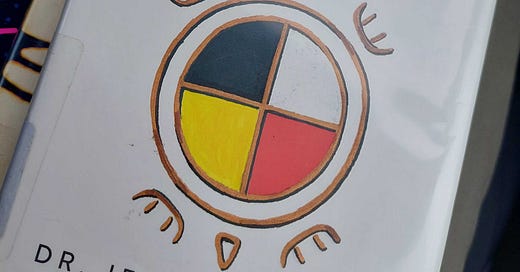






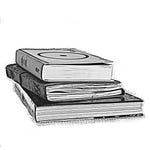
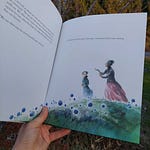
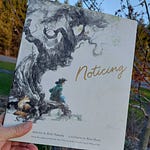
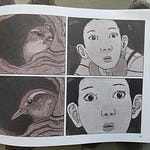

Share this post